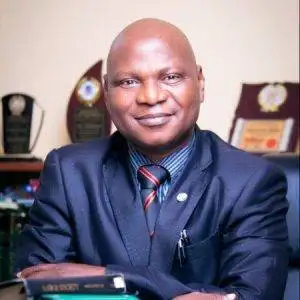Damilola Olufemi, Fatimah Idera
Following the end of the six-month emergency rule in Rivers State, headed by ex-administrator Ibok-Ete Ibas, the Federal Government declared that Governor Siminalayi Fubara, his deputy, and members of the State House of Assembly were free to return to office on September 18. The Rivers State House of Assembly, presided over by Speaker Martin Amaewhule, resolved to investigate expenditure during the emergency rule.
According to the resolution, the probe is “to explore the process of knowing what transpired during the emergency rule with regard to spending from the consolidated revenue fund for the award of contracts and other expenditure.”
Records from the Federation Account Allocation Committee (FAAC) between March and August 2025, alongside data from the National Bureau of Statistics and other sources, revealed that the state received a total net allocation of ₦254.37 billion, averaging ₦42.40 billion per month, under the tenure of the sole administrator.
Civil Society Organisations (CSOs) in Rivers State have also intensified calls for transparency over how funds received by the state during the six months of emergency rule were managed.
Enefaa Georgewill, chairman of the Coalition of Civil Society Organisations in Rivers, said the appointment of a sole administrator was unconstitutional and raised doubts about the use of public resources under his watch. According to him, the sheer volume of allocations released to the state only fuels suspicion of mismanagement.
He noted that despite the inflows, many critical projects remained abandoned. “We suspect corruption. The reason being that almost all the major projects are stalled, even the House of Assembly Complex, which he tried to touch; he couldn’t even finish it,” Georgewill said.
The CSO leader urged Governor Siminalayi Fubara to establish a panel of inquiry to investigate both federal allocations and internally generated revenue during the emergency period. He also pressed financial watchdogs to step in.
“We will be calling on the Rivers State Governor to set up a panel of inquiry to ascertain how much he received both in terms of federal allocation and Internally Generated Revenue and how he expended it. … So, we will be calling on the governor and financial regulatory agencies to make sure that they question how the funds of Rivers State were expended,” Georgewill added.
Ibas reacts
But Ibas rejected the probe saying the lawmakers lacked the authority to investigate him since they did not appoint him.
According to Ibas, any attempt to probe his tenure would amount to probing the President who appointed him and the National Assembly that supervised his administration.
“While nobody can prevent the Assembly from probing what they perceive to be their functions within the state, the attempt to probe the immediate past administrator of the state would be a “fool’s errand.
“When you say they were going to probe the tenure of the administrator, was it the Assembly that appointed the administrator?
“You see, the point to note is that commentary is free. You can’t stop people from running commentary. The House of Assembly has been on break for a very long time, and you will appreciate that they have not been able to discharge their functions for such a long time,” Ibas said.
Expert speaks

Speaking to The New Daily Prime, Professor Sesan Fabimise of Afe Babalola University, Ado Ekiti, stressed that any such probe would be “an exercise in academic purposes only.”
He explained that “the essence of a probe is to punish upon indictment. Then, we ask the question again: Can the House of Assembly punish the former Sole Administrator? The answer is an emphatic NO. Only the appointor, who in this instance is the Federal Government, can punish the Sole Administrator upon indictment. So, what is the essence of probing an individual or institution that you cannot punish if indicted?”
Fabimise further clarified that during the emergency period, the National Assembly stood in place of the Rivers Assembly. Thus, the best the state lawmakers could do, if they suspect wrongdoing, is to petition the Federal Government either directly or through the National Assembly.
Tinubu summons Ibas
Meanwhile, Tinubu, on Wednesday evening, held a closed-door meeting at the State House in Abuja with Ibas.
The ex-administrator, a retired naval chief, arrived shortly before 6 p.m. He was joined by Ola Olukoyede, chairman of the Economic and Financial Crimes Commission (EFCC), and Wale Edun, minister of finance.
The agenda of the meeting was not immediately disclosed as of the time of this report.



